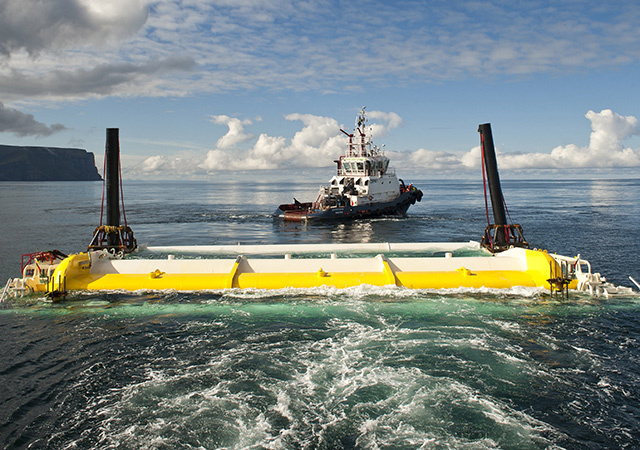
Two renewable energy bodies have published study findings aimed at helping wave power developers avoid costly errors when testing their devices at sea.
Wave Energy Scotland (WES) and the European Marine Energy Centre (EMEC) questioned companies in Orkney’s well-established renewables supply chain to compile the research.
The organisations say the information will help firms take the readiness of their devices for sea condition into consideration at an early stage in the design process.
Among issues identified were the need for appropriate lifting points on devices, the importance of budgeting for regulatory issues and the benefits of refining and improving marine operations.
WES managing director Tim Hurst said: “Information of this kind will be invaluable to wave energy converter developers in the WES programme.
“The study will help our programme participants to make informed decisions at earlier stages of their device development. Ultimately, this will help avoid costly errors at the deployment stage.”
Nine Orkney firms with more than 500,000 hours of combined experience in marine renewables operations took part in a series of workshops during the study.
EMEC’s technical manager Elaine Buck said: “To date, EMEC’s test sites have played host to 19 developers and more than 100 wider research projects. Orkney’s supply chain companies have been instrumental in those activities, and we have drawn upon all that experience in this project.
“The input we’ve gathered is unprejudiced in drawing together both the positive and negative lessons learnt, and covers a depth of expertise captured within each of the participating companies.
“By cataloging some of this learning we hope the next developers on site can de-risk and accelerate their plans, as well as achieve cost reduction, armed with guidance based on hard-won experience.”
Recommended for you
